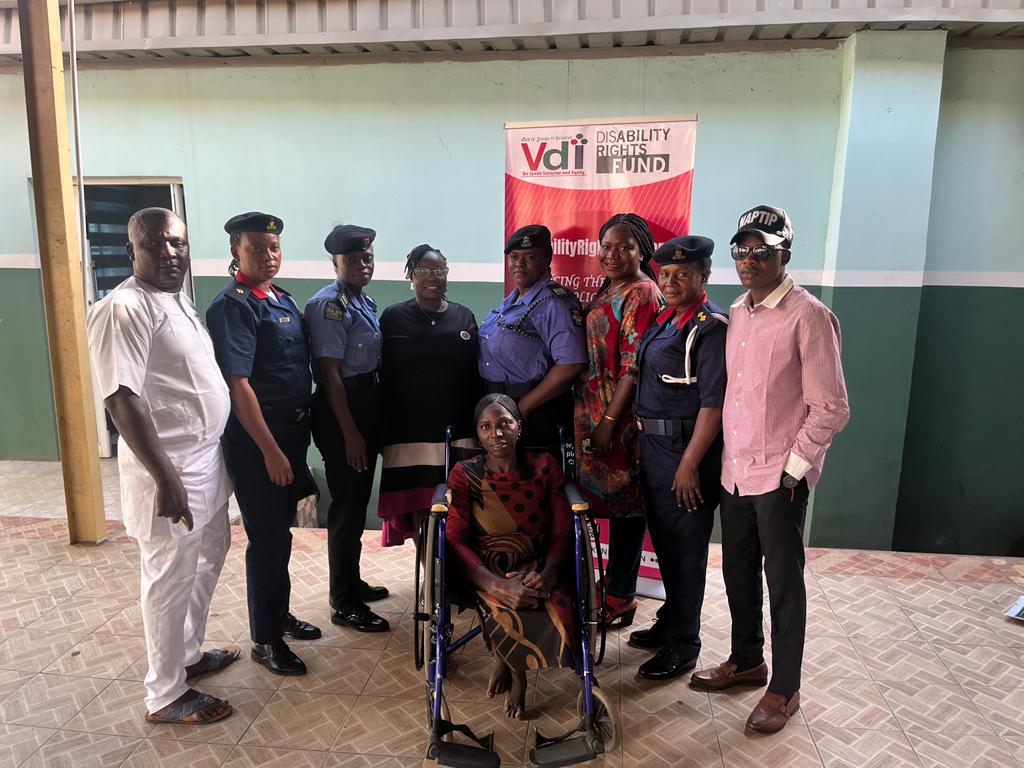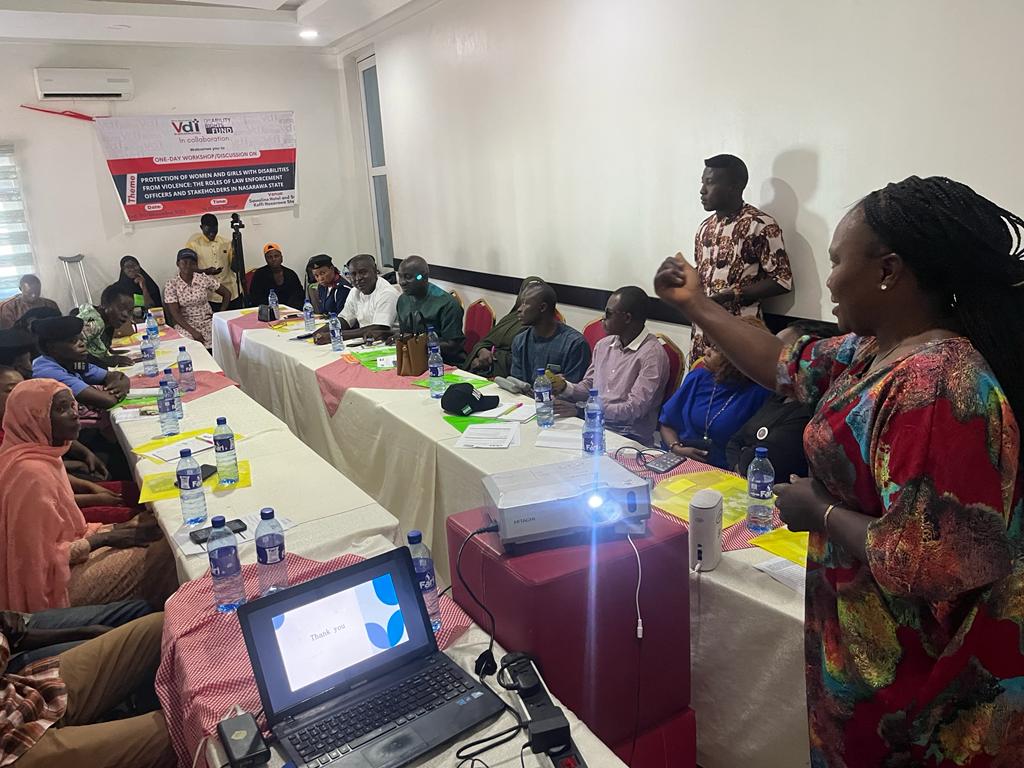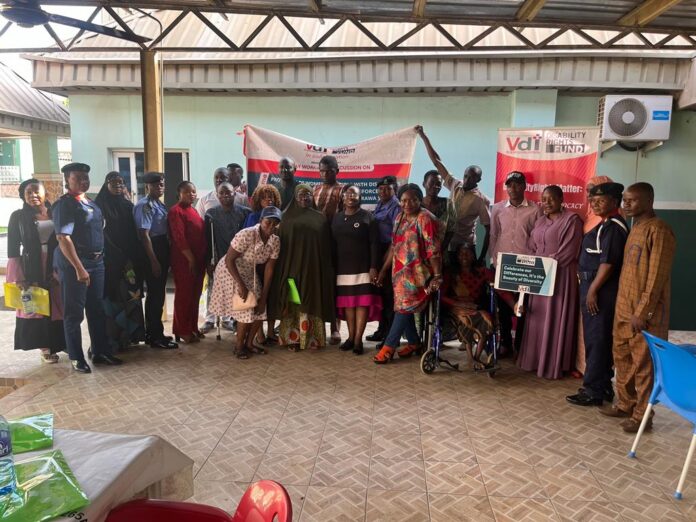One of the leading organization of persons with disabilities working on gender inclusion of persons with disabilities, Voice Of Disability Initiative (VDI) has engaged stakeholders in Nasarawa on improving access to healthcare services and protection of women and girls with disabilities from violence and abuse.
The engagement took place in Keffi, Nasarawa State on Wednesday through a One-Day VDI’s organized Workshop for healthcare providers, law enforcement agencies on improving access to healthcare services for women and girls with disabilities in Nasarawa state with the support from Disability Rights Fund (DRF).
The one-day sensitization and awareness creation was designed to help in reduction of the challenges faced by women and girls with disabilities in the state in accessing healthcare facilities especially with key stakeholders in the state such as the State Ministry of Health. The challenges cannot be mitigated without the involvement of all the relevant stakeholders coming together to lend their support and voices as well as prioritizing women and girls with disabilities in accessing health facilities in the state.
Barr. Catherine Edeh, the Executive Director, VDI in her welcome address said that women and girls with disabilities are the least likely to enjoy their sexual and reproductive health and rights (SRHR). Families and communities especially healthcare providers continue to be bound by discriminatory social norms, putting this group at greater risk of exclusion.

It is in view of these that VDI decided to raise awareness of the underlying issues and challenges faced by women and girls with disabilities, offers good practices in this area, as well as calling stakeholders to action to advance the recognition and realization of their sexual and reproductive health and rights.
“Women and girls with disabilities have the same sexual and reproductive health and rights as other girls and young women, as recognised in the Convention on the Rights of the Child(CRC), the Convention on the Elimination of all Forms of Discrimination Against Women(CEDAW), and the Convention on the Rights of Persons with Disabilities (CRPD), as well as in other international policy documents, including the Programme of Action of the International Conference on Population Development” she added.
“The barriers that women and girls with disabilities face to fulfilling their sexual and reproductive health and rights are further compounded by the variety and intensity of their disabilities; the more severe the disability, the greater the risk of exclusion and abuse”.
She pointed out that each type of disability creates specific needs around which SRHR services and information must be tailored, meaning there is no one-size-fits-all approach to guaranteeing the realization of their SRHR. However, attention to these particular needs is rare, rendering the entire spectrum of sexual and reproductive health services inaccessible to women and girls with disabilities.
Speaking further, she said that evidence gathering carried out by VDI on women and girls with disabilities and their access to healthcare services in the state, it was discovered that about 80% of them complained of attitudinal and discriminatory practices meted to them by healthcare providers. It is even worse to those accessing public health facilities. Most of them complained that when they experience such attitudes and discrimination, they tend to seek for alternative healthcare by going to chemists or using traditional methods, which in most times endanger their lives.
“The above forms part of the reasons, VDI put together the workshop to further understand the challenges faced by these women and girls with disabilities and have an informed judgement or opinion on how to deal with the issues that will arise as a result of their rights violations or as they carry out their daily work.
Ms Edeh eulogized that Gov. Sule for his effort on domestication of disability act which would enhance the propagation of the rights of persons with disabilities in Nasarawa State.

In the course of the workshop, VDI had a productive discussion with law enforcement agencies and health practitioners on protection of women and girls with disabilities from violence. The stakeholders were made to understand their roles using the Legal Framework such as National Policy on Sexual and Reproductive Health and Rights of Persons with disabilities with emphasis on Women and Girls, Discrimination against Persons with disabilities (Prohibition) Act 2018 and Violence against Persons Prohibition (VAPP) Act.
The workshop also witnessed presentation on National Policy on Sexual and Reproductive Health and Rights of Persons with disabilities with emphasis on Women and Girls by Catherine Edeh.
The CEO, Jewels Hive, Barr, Oluwatoyin Bamgbose-Felaiye made a presentation on Sexual and Reproductive Health Right of Women and Girls With Disabilities: Understanding the Legal Frameworks (National Policy on SRHR, VAPP Act) Policy to Practice.
There were observations, contributions, comments, shared experiences from stakeholders on National Policy on SRHR, VAPP Act and Disability Act.


